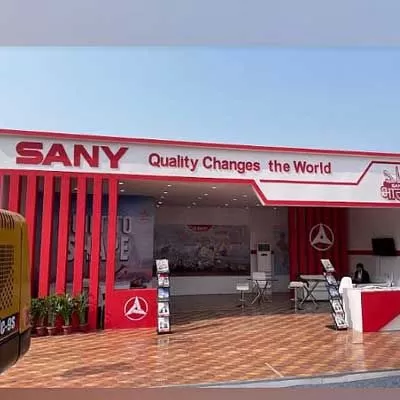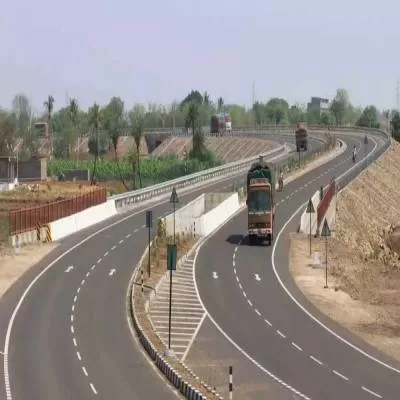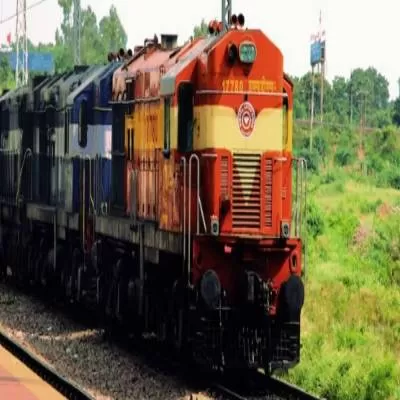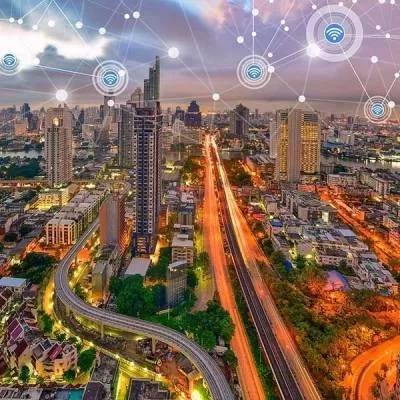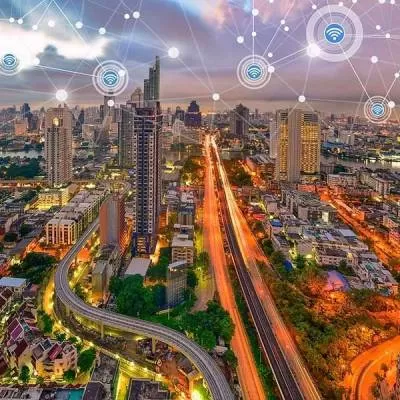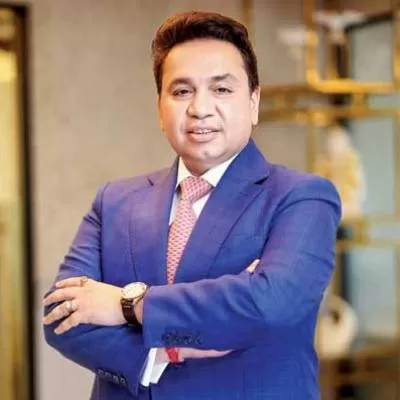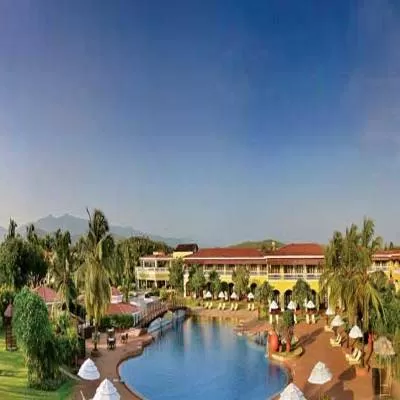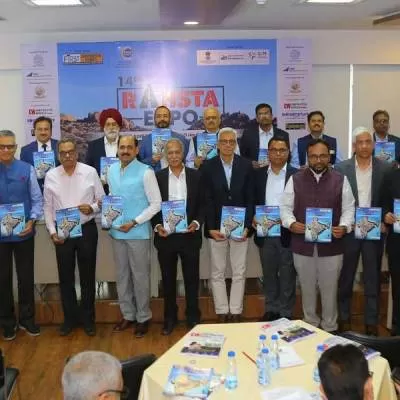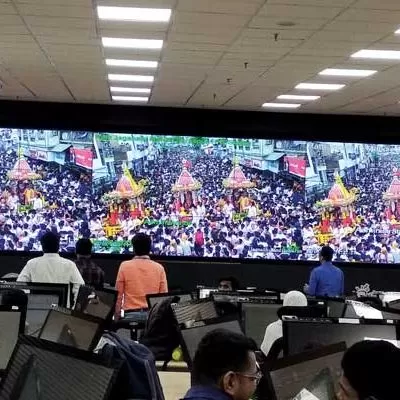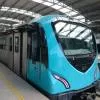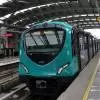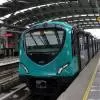- Home
- Infrastructure Urban
- SMART CITIES
- Smart Cities
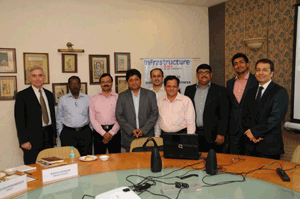
Smart Cities
Arun Dubey, Director, Jaldhara Technologies
"Cities are intended to be permanent. As smart cities are the outcome of planning for how long can a planned city manage natural and manmade fundamental changes? Can a smart city provide water to citizens for the next 100 years? Will it be able to manage its transportation considering the future influx of people? So, while planning a smart city, the developer, along with the Centre or state government, must consider long-term planning rather than short term."
Soma Vijayakumar, CGM (Transport & Airport) T&C Planning Department, CIDCO
"Navi Mumbai, with a population of over 2 million, has been planned in such a way that it can take the burden of an additional 2 million. We will develop a parallel city much bigger than Navi Mumbai near the proposed Navi Mumbai Airport in the next 30 years to accommodate a population of 8 million. The city will be developed through two planning units. Here, we will construct world-class infrastructure for the future needs of the city with cutting-edge technology that can be used efficiently to safeguard the interests of the community."
Scot Wrighton, City Manager, Lavasa Corporation
"We have been using terms like green city, smart city and sustainable city. However, none of them have been defined by the government and independent rating agencies. But a good thing about starting a new city from scratch is the possibility to create an integrated development, where there is the possibility of using the same project management for all buildings. Another good aspect of making a new city is that you can build it sustainable - financially, socially and environmentally. But there are also challenges; after more than 10 years from the beginning of construction, there is no sustainable governance model, so institutional relationships are complicated."
Aniket Agarwal, Global Head-Telecom Products, Sterlite Technologies
"A fundamental question pops up here: Who builds these smart cities? Another one: Who has more interest in smart cities? If it is the government's growing interest, then why? Today, we need to understand whether the building of smart cities is for the national interest or the need of the hour because smart cities are not economically viable unless the government leads the way and makes these projects economically viable for investors using the PPP model."
Shailesh Patwardhan, AVP Business Development, Integrated Transport Solution, Serco India
"Despite having security, disaster control, energy and building management systems, it is necessary to install a smart transportation system. The whole approach of constructing a smart city should start considering the basic unmet needs of the people. The smart city, as a concept, should consider a support system to existing infrastructure. Being smart does not refer to the use of only advanced technology but smart planning in terms of sewage, intelligent water management and a transit management system for commuters that can add value to the overall concept of a smart city."
Rajan Gaonkar, General Manager-Product Management-STC, UPG and VRF, India Building Efficiency, Johnson Controls (I) Pvt Ltd
"The Indian government or rather state governments must lay down parameters for smart city projects, because anybody can define smart cities in their own way. The government should come out with a set of standard parameters to measure the process of smart city projects. The measuring pattern can consider components such as materials, technology, security, environment, finance and transport, which are integral parts of any smart city project."
Satyajeet Vaidya, DGM-NMS Central Team Operations, Alstom Technologies
"A planned city must consider in advance the operation and maintenance (O&M) of assets and resources. If a smart city administration takes care of O&M activities, it will arrest the additional cost on procurement of new machinery and bring down overspending on existing assets. It is important to identify the lifecycle cost of resource and assets with a proper maintenance schedule under the observation of the city administration."
Sanjay Paranjape, City Account Manager, Siemens
"While we have touched upon planning, management, economic viability and O&M, we should also consider execution as an important element for any smart city project. It is a matter of accountability while constructing a smart city project where a stakeholder investment is involved as these projects are long gestation projects. In addition, involvement of urban local bodies will add value to any smart city project as they have more experience in managing a city and making it smart."
Kalyan Dey, Cluster Manager, L&T-ECC
"For me, a timeframe has to be involved while designing a smart city project along with the comfort level of end users. It is the prime responsibility of a developer to design a smart city on adhering to the needs, goal, vision and visibility of end users. A smart city should build around the needs and vision of citizens, not the other way.
The sustainable development of a smart city would depend on economic or industrial development."
In conclusion
With the Narendra Modi-led government having 100 smart cities on its construction agenda, many challenges lie ahead. While Dubey believes the master plan for any smart city has to be adaptable with flexible guidelines, Dey emphasises that it is the balance between industrial and economic activities that will drive a smart city project. Moreover, Vaidya, in his concluding remark, highlighted the need for trained administrators to manage a smart city. While Wrighton laid stress upon the role of governance, Agarwal explored the financial viability of a smart city.
All in all, the panelists shared one common view: there is a need for set standards and parameters for any smart city project in India.
To participate in the future conferences on Smart Cities, write in at Vrushali@ASAPPmedia.com
Tracking the growing potential of smart cities and opportunities arising for developers, contractors and vendors alike, CW organised the second round table on the subject in Mumbai on May 15, 2014; the first was held in Bengaluru on February 26, 2014. Convened by Pratap Vijay Padode, Editor-in-Chief, CW, and moderated by Scot Wrighton, City Manager, Lavasa Corporation, the event brought together nine industry experts who deliberated upon issues ranging from governance to execution. Excerpts... Arun Dubey, Director, Jaldhara Technologies "Cities are intended to be permanent. As smart cities are the outcome of planning for how long can a planned city manage natural and manmade fundamental changes? Can a smart city provide water to citizens for the next 100 years? Will it be able to manage its transportation considering the future influx of people? So, while planning a smart city, the developer, along with the Centre or state government, must consider long-term planning rather than short term." Soma Vijayakumar, CGM (Transport & Airport) T&C Planning Department, CIDCO "Navi Mumbai, with a population of over 2 million, has been planned in such a way that it can take the burden of an additional 2 million. We will develop a parallel city much bigger than Navi Mumbai near the proposed Navi Mumbai Airport in the next 30 years to accommodate a population of 8 million. The city will be developed through two planning units. Here, we will construct world-class infrastructure for the future needs of the city with cutting-edge technology that can be used efficiently to safeguard the interests of the community." Scot Wrighton, City Manager, Lavasa Corporation "We have been using terms like green city, smart city and sustainable city. However, none of them have been defined by the government and independent rating agencies. But a good thing about starting a new city from scratch is the possibility to create an integrated development, where there is the possibility of using the same project management for all buildings. Another good aspect of making a new city is that you can build it sustainable - financially, socially and environmentally. But there are also challenges; after more than 10 years from the beginning of construction, there is no sustainable governance model, so institutional relationships are complicated." Aniket Agarwal, Global Head-Telecom Products, Sterlite Technologies "A fundamental question pops up here: Who builds these smart cities? Another one: Who has more interest in smart cities? If it is the government's growing interest, then why? Today, we need to understand whether the building of smart cities is for the national interest or the need of the hour because smart cities are not economically viable unless the government leads the way and makes these projects economically viable for investors using the PPP model." Shailesh Patwardhan, AVP Business Development, Integrated Transport Solution, Serco India "Despite having security, disaster control, energy and building management systems, it is necessary to install a smart transportation system. The whole approach of constructing a smart city should start considering the basic unmet needs of the people. The smart city, as a concept, should consider a support system to existing infrastructure. Being smart does not refer to the use of only advanced technology but smart planning in terms of sewage, intelligent water management and a transit management system for commuters that can add value to the overall concept of a smart city." Rajan Gaonkar, General Manager-Product Management-STC, UPG and VRF, India Building Efficiency, Johnson Controls (I) Pvt Ltd "The Indian government or rather state governments must lay down parameters for smart city projects, because anybody can define smart cities in their own way. The government should come out with a set of standard parameters to measure the process of smart city projects. The measuring pattern can consider components such as materials, technology, security, environment, finance and transport, which are integral parts of any smart city project." Satyajeet Vaidya, DGM-NMS Central Team Operations, Alstom Technologies "A planned city must consider in advance the operation and maintenance (O&M) of assets and resources. If a smart city administration takes care of O&M activities, it will arrest the additional cost on procurement of new machinery and bring down overspending on existing assets. It is important to identify the lifecycle cost of resource and assets with a proper maintenance schedule under the observation of the city administration." Sanjay Paranjape, City Account Manager, Siemens "While we have touched upon planning, management, economic viability and O&M, we should also consider execution as an important element for any smart city project. It is a matter of accountability while constructing a smart city project where a stakeholder investment is involved as these projects are long gestation projects. In addition, involvement of urban local bodies will add value to any smart city project as they have more experience in managing a city and making it smart." Kalyan Dey, Cluster Manager, L&T-ECC "For me, a timeframe has to be involved while designing a smart city project along with the comfort level of end users. It is the prime responsibility of a developer to design a smart city on adhering to the needs, goal, vision and visibility of end users. A smart city should build around the needs and vision of citizens, not the other way. The sustainable development of a smart city would depend on economic or industrial development." In conclusion With the Narendra Modi-led government having 100 smart cities on its construction agenda, many challenges lie ahead. While Dubey believes the master plan for any smart city has to be adaptable with flexible guidelines, Dey emphasises that it is the balance between industrial and economic activities that will drive a smart city project. Moreover, Vaidya, in his concluding remark, highlighted the need for trained administrators to manage a smart city. While Wrighton laid stress upon the role of governance, Agarwal explored the financial viability of a smart city. All in all, the panelists shared one common view: there is a need for set standards and parameters for any smart city project in India. To participate in the future conferences on Smart Cities, write in at Vrushali@ASAPPmedia.com


